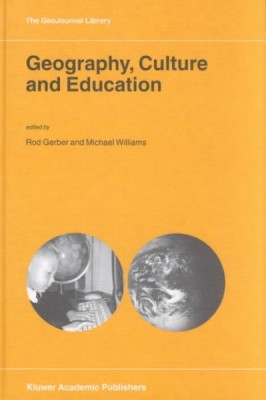| Geography, Culture and Education 2002 Edition Contributor(s): Gerber, Rod (Editor), Williams, M. (Editor) |
|
 |
ISBN: 1402008783 ISBN-13: 9781402008788 Publisher: Springer OUR PRICE: $104.49 Product Type: Hardcover - Other Formats Published: October 2002 Annotation: This book draws together for the first time expertise in cultural geography and geographical education that synthesises the main ideas in these fields to improve our cultural understanding of the world and to demonstrate how such understanding may be interwoven into the geography curricula at different levels of education. Its aim is to inject more intercultural understanding and education into people's lives. This is achieved by focusing on key aspects such as geography and culture, geography and citizenship, pedagogic implications and future directions for inter-cultural learning, understanding, and education. Through contributions from international researchers and educators, this publication demonstrates how the study of geography can assist people in different social and cultural groups to sustain their lifeworlds, and, wherever possible, improve them for future generations of citizens. Therefore, geography can be effective in the promotion of lifelong learning for groups of people who interact in both real and virtual worlds in the twenty-first century. |
| Additional Information |
| BISAC Categories: - Education | Curricula - Science | Earth Sciences - Geography - Science | Study & Teaching |
| Dewey: 910.71 |
| LCCN: 2002032155 |
| Series: Geojournal Library |
| Physical Information: 0.78" H x 6.54" W x 9.72" (1.21 lbs) 250 pages |
| Descriptions, Reviews, Etc. |
| Publisher Description: An important challenge for our world is to understand how cultural understanding and geographical education can be linked and used to improve the global society. We readily accept that our world is constituted by numerous groups of people who are organised by committees, tribes, regions, nations or continental entities. How these groups interact, show concern for each others' well-being and progress is still an unpredictable activity. Intercultural tensions, racial conflicts and religious clashes have all led to the challenges for enacting a constructive world. Fundamental perspectives challenge moderate ones, and the resulting tensions produce elements of fear, doubt and distrust. The extremist views of terrorist groups exaggerate these tensions to the extent that some different cultural groups do not prefer to live in peace with their neighbours. Deep-seated intercultural tensions predominate over peaceful co-existence. Such challenges may easily dominate the interaction between racial groups, tribes, indigenous peoples and colonisers. However, we know that through the sound practice of intercultural understanding, cultural groups in different contexts around the world can interact and co-exist successfully and productively. In fact, they can work together to seek to improve their society. This does not mean that one group will dominate the other. Rather, it means that both groups work together to improve their collective lives. Education has played an important role in the long-term achievement of such harmony. This volume has been developed to demonstrate that geographical education can be a potent force in the development of cultural understanding in different societies. |